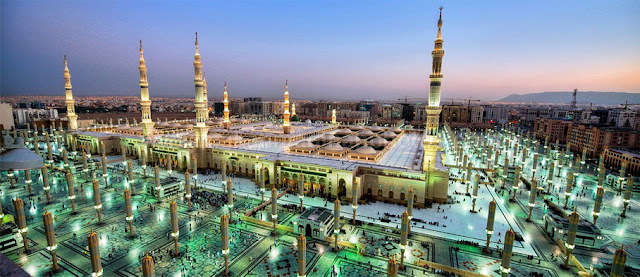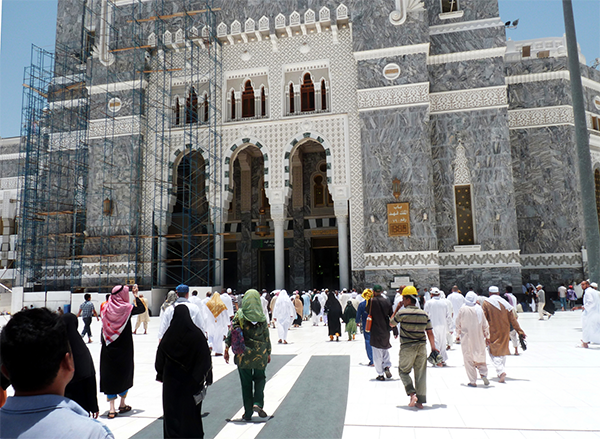Six Ways to Bring Youth Back to the Masjid
One of the modern-day challenges that Muslims face is successfully attracting and tying their youth to the local Islamic community center or masjid, as regular and eager attendees.
It is not uncommon for parents of most older Muslim children viz. teens and teenagers, to feel as if they have to coerce, entice, if not literally drag, their wards to the masjid to pray salah or to attend an event. Many parents have to watch with dismay, as the advent of college life for their eighteen year old offspring practically translates to the end of their visits to the masjid.
On the other hand, there are inspiring examples of youngsters who willingly remain active from the start at their local masjid, and even after they move away to live independently on college campuses, they remain masjid regulars, by actively coordinating events at the local MSA musalla (prayer place of the university’s Muslim Student Association).
So the question arises, that if a parent of a baby, toddler, or young child harbors the vision of seeing their offspring grow up to be a regular masjid-goer, what can and should they do, to practically implement this noble vision from the start of their parenting journey?
Put Yourself in Their Shoes First
One of the most effective mental ‘exercises’ that a parent, teacher or youth mentor can undertake in order to enhance their empathy and compassion towards youngsters, and to allow themselves to ‘see’ things from the point of view of the youth, is to go back in time and try to recall their own childhood experiences regarding a particular situation that involves motivating the youth to come towards Deen.
For example, if you would like a child to read more Islamic literature, try to recall what encouraged and inspired you to read the same when you were a child. Try to bring to mind all the books and/or newspapers/magazines that you liked reading at that age.
This mental exercise works wonders, but it takes deliberate, proactive efforts by adults, and is more difficult to do with advancement in age.
The same exercise can help parents and community leaders better understand how they can make the masjid a place where the youth would like to willingly and eagerly hang out more.
They should try to recall what they loved about attending the masjid with their own parents, as children. And if they didn’t go to a masjid (e.g. because they were born to non-Muslim parents), then which places did they liked to visit the most with their parents as children? What did they enjoy doing the most during these outings?
Start Them Early
For those Muslims who have babies and toddlers, it is easy to start taking their little ones regularly to the masjid, but it is also imperative that they train them side by side about how to behave there.
The younger the child, the easier he or she is to train to behave well at the masjid. Besides attending taraweeh during Ramadan, and jumuah prayers on a weekly basis, parents and community leaders should facilitate programs and accommodations at the masjid that welcome young Muslims.
For example, investing in setting up small, private areas for: nursing mothers to breastfeed and change their infants, toilet and ablution facilities, a cafeteria or snack bar, a play area for smaller children on the premises, and/or paid crèche facilities during lectures and large-scale events.
It will take not just monetary investment and a paradigm shift in the thinking of the community elders (especially those older Muslim men who believe in the ideology that a masjid is men’s zone only, that doesn’t welcome women and children), but also architectural-design-remodeling efforts to make sure that the masjid becomes a place where younger Muslims (who will become the adult Muslims of the next generation) are welcomed as soon as, if not before, the day they are born!
Make Youth Feel Welcome and Valued
In order to attract Muslim (and non-Muslim) youth to a masjid or Islamic center, it has to be a place where they are made to feel not just welcome, but also valued for who they are, for example through what they can offer in terms of time and services as a human resource.
By delegating easy-to-do tasks to youngsters at events that are fun and interesting for them to attend, this can be accomplished. Bake sales for charity, sports events, babysitting duties, printing and publishing simple things such as event flyers or colorful newsletters, teaching Quran to younger children, and assisting adults in other simple, management-related tasks would be good options to involve the youth at the masjid to make them feel valued.
Be the Change You Wish to See
Adults of the Muslim community who are active in the da’wah circuit, and who volunteer regularly for masjid events, should keep an alert, critical eye on their own behavior, persona and conduct whilst they are there.
This is because the younger Muslim generation keenly observes the adults they see at the masjid or Islamic center. They also subconsciously compare the apparent character traits of these adult Muslims to the mannerisms, conduct, level of politeness and personas of non-religious, secular-minded Muslims and non-Muslims whom they observe outside the masjid, in their social circles and educational institutes.
If the adults at the masjid come out lesser in these mental comparisons made by an impressionable little child, that child will eventually want to stop coming to the masjid as they grow older. This is because he or she will automatically think to themselves, “I don’t want to become/end up like these stiff, rude, smelly people with crass manners, who are always so stern with me as compared to that nice, smartly-dressed, always-smiling lady manager at [any children’s public place], who treats me so much better whenever I visit her establishment!”
Relocate if Possible
Once a married Muslim couple has their first child, their strategic life decisions should be made whilst keeping in mind the impact that they will have on their child’s moral and religious upbringing.
That is why, for ensuring that their child grows up ‘tied to’ the masjid as a regular and eager attendee, a Muslim couple living in non-Muslim majority areas around the world should try to relocate to a city in which a ‘happening’ Islamic center is within a short driving distance.
Many Muslim couples make the decision of relocation, while their children are little, solely on the basis of the salary or career boost that the move will allow them to obtain. Most do not get concerned by the fact that the nearest halal food store and masjid is in another city, over an hour’s drive away.
As their children grow older and enter their teens, the parents begin to practically witness the negative impact that their past choices and decisions regarding the family’s relocation due to careers or citizenship, have had on their offspring’s religious inclination and level of iman (faith).
These parents then resort to desperate damage control through impulsive, aggressive parenting behavior to undo the negative outcome of their laxity in implementing their children’s moral training during the latter’s formative childhood years.
Many a time, such parents end up failing to bring their youngsters back to the masjid.
That is why, it is very important for Muslim parents to live near a masjid, especially in non-Muslim countries.
Perform Hajj & Umrah with Your Children
Last but not least, and this point in intended especially for Muslim parents living in the West – it is very important to take young children for hajj, at least once, and for umrah every few years, if parents desire to see them regularly attend the masjid for prayers and other events as adults.
Even if it means sacrificing a couple of foreign vacations (including the family’s yearly visits ‘back home’ to their ancestral lands), Muslim parents living in the West should endeavor to save extra money over the years to go for the hajj pilgrimage once, as a family, and to perform a umrah every few years, as part of their long-term investment plans for their children, just the way they set aside money for their college education.
Many a young person returns from hajj and umrah a changed Muslim, with a new, firm resolve to increase in faith and good deeds. The experiences of seeing the holy Ka’bah and praying in both the haramain (masjids) in Saudi Arabia, will invigorate religious faith and leave a lasting, spiritual impact on their young children, Insha’Allah.
Incorporating a few, if not all, of the above suggestions will make it possible for the adults in all Muslim communities worldwide to securely ‘tie’ their little ones to the masjid from childhood, Insha’Allah.
Source: aboutislam.net/









